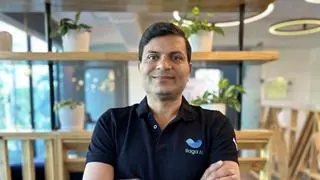Covid-19 has shocked every human being and every company around the world. There are frantic efforts to find a cure and a vaccine that can protect humans. Until we have a prophylaxis against Covid-19, the best for all of us to do is to wear masks, avoid crowds, maintain a social distance and take other precautionary measures.
There are business implications to the social, economic, employment, operational and technical aspects for the world and for the sharing economy, which need to be understood and addressed for the post Covid-19 world.
The ‘sharing’ economy
The dominant thesis over the past decade has been the ‘sharing’ economy. You share what you own – be it your ride share, home, car, plane, furniture, clothing and sports equipment. From a financial perspective, you leverage the assets that you own to derive additional income. This was built to eke out the efficiencies in our societal infrastructure, while breaking the monopoly of entrenched hotels and the taxicab industry. Over the past decade Uber, Lyft, Ola, AirBnB, WeWork and others have become household names, enjoyed amazing growth, generously supplemented by venture capital money.
Social distancing and sharing economy are like water and oil. They do not mix. When you are afraid to even venture out in public, where is the point in sharing your car ride or home with a stranger? Today, the prospect of sitting next to a stranger in the confines of our car sends shivers up our spines. As Covid-19 holds its tight grip across the globe, carpooling is considered risky. So also commuting in an overcrowded metro, bus, subway or train.
Like in any situation, there are winners and losers; e-commerce companies such as Amazon, Flipkart, BigBasket, Grofers, Swiggy and Zomato, which deliver food, medicines and goods to your home are the big winners. So also broadband services such as Jio, Netflix, Hotstar/Disney. As it turns out, DriveU, the company that I co-founded, is poised to be a winner in more ways than one. Anticipating increased car ownership from a burgeoning middle class, DriveU went against the grain of social sharing. As the sharing economy takes a back seat for the near term, DriveU has an opportunity to enhance the trust and experience that it has inculcated over the past five years.
Car ownership to rise
Here is how we see things change over the next few years. While it became fashionable to not own a car and use a taxicab, people will reconsider this decision. One naturally feels confident riding in one’s own car, which is potentially not infected by a stranger who sat in that same seat, a few minutes back. We anticipate car ownership will make a resurgence, especially in a developing country like India.
About 25 per cent of our daily trips is for business clients. We serve over 50 clients. The three major category of businesses that we serve today are used car sales (Cars24, Cardekho, OLX, MySpinny); home delivery of rental cars (Zoomcar, Ola Drive, Drivezy, MyChoice); and, car maintenance (many dealers). In each of these cases, the driver is moving the vehicle on his own and social distancing anxieties are not relevant. As we hypothesised earlier, car ownership will rapidly increase and used car sales are expected to benefit in this tough economy for the near-term.
DriveU is the only national known brand for used car sales business and it is expected to benefit. More car ownership means more trips to get a car maintained. DriveU will benefit here. The rental car clients are experimenting renting cars during weekdays for business travel, not just for weekend getaways. DriveU can also benefit this market segment – both for home delivery and providing chauffeurs.
In North America, Uber and Lyft allowed people to earn additional income apart from their regular job. It started as a casual affair, whereby one shared a ride when they happened to be going in the same direction around the same time.
A majority of Uber and Lyft drivers owned a car and they simply leveraged their ride and time to make additional income along the way. That is not how it developed in India, where a driver ended up buying or leasing a car and becoming a ‘full-time’ driver on the Uber or Ola platform. Because of this, cab drivers in India had to work 15+ hours a day, to repay their car loans and earn a nominal income.
Ola purchased thousands of vehicles and leased them to drivers. In effect, Ola ended up not being the asset-light business that it set out to be. DriveU, on the contrary, has maintained a truly asset-light model with just driver aggregation. Our drivers are not burdened by EMI, fuel, and maintenance expenses. So, DriveU can serve the needs of all the above use cases, all on the same day, by even the same driver! This flexibility can help DriveU thrive in a post Covid-19 world.
Building trust
DriveU drivers on average earned more, working for relatively a smaller number of hours. As a rule of thumb, a DriveU driver netted ₹1,000-1,500 per day. Therefore, DriveU attracts relatively higher-end, urbane drivers who are well groomed and well behaved. These drivers have built a strong trust with our customers. Over 70 per cent of active DriveU drivers work part-time – mornings, evenings or weekends – supplementing their ‘day job’. This is like an average Uber or Lyft driver in North America. They are business owners, college students, IT professionals and the like. They are naturally tuned to be trustworthy in the eyes of our customers.
DriveU will ensure our drivers wear a mask, gloves and seat covers when they drive our customer’s car. DriveU has built technology and operational processes to ensure the driver adheres to these protocols. We will extend the technology to ensure post Covid-19 paraphernalia are adhered to before they start a trip.
Every driver will be certified by a doctor every three months to ensure that he is in good health and they will possess a certificate from a reputed hospital. As soon as a driver is assigned, the customer, in addition to receiving the general information about the driver, will get to see the health certificate. Every driver will own a thermometer. As soon as he checks-in to the platform, he can accept a booking only if he recorded and reported his temperature. Over the course of the day, he may have to report his temperature. After he arrives at the customer location, before a trip begins, he will be prompted to measure his temperature again. All this information, stored on the server, will be made available to the customer before a trip begins. We believe the above enhancements to our technology and operations will ensure that our customers can trust DriveU in this post Covid-19 world.

Ramprasad Shastry, co-founder and CEO, DriveU.
The author is co-founder and CEO, DriveU, a Bengaluru-based start-up that provides drivers on demand








Comments
Comments have to be in English, and in full sentences. They cannot be abusive or personal. Please abide by our community guidelines for posting your comments.
We have migrated to a new commenting platform. If you are already a registered user of TheHindu Businessline and logged in, you may continue to engage with our articles. If you do not have an account please register and login to post comments. Users can access their older comments by logging into their accounts on Vuukle.